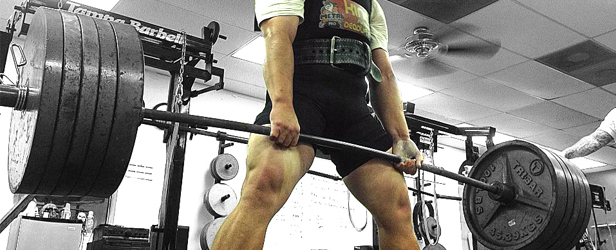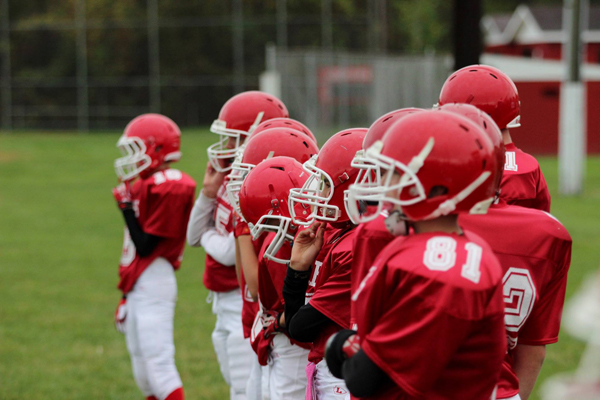
With sports training, we often hear of extremist approaches and scoff at them. We think of how these approaches are crazy and will result in injuries or shortened careers or that many athletes really don't need them to progress. Often, this is in the realm of physical preparation and strength sports. However, if we take a step back and look at what we do in our training of team sports athletes, we have to think for a second if we really are any different.
Some Similarities
Sport and competition transcend many different cultures. Numerous countries take great pride in these areas whether we're referring to the international level such as the Olympics or on the professional level.
Some universal truths that fit in many areas of the world are:
- Sport is viewed as a way to view the image of a country or collective group and how they compare to others.
- Sport is an entity of nationalism and/or pride.
- Sport can be viewed as either a way of life to the career athlete or a productive pastime to the recreational athlete.
- In areas of lower socioeconomic status, sport can have the possibility of granting opportunities that may otherwise be unavailable (college scholarships, professional contracts, government stipends, etc.).
With these in mind, there are many good reasons to be involved with sports and competition. However, some of the same positives associated with these points can also be negative.
Different Sports, Different Levels of Athletes, Similar Approaches
I got the idea to write this article when I was watching a documentary on YouTube called School of Champions. To give a brief synopsis, the film follows Ivan Abadjiev and the Bulgarian weightlifting team. Their training is shown as well as Abadjiev’s interaction with his athletes. I'm not sure how much is sensationalized, but you can tell that he isn’t exactly the easiest person in the world to have for a coach. At times, he uses harsh language, is uncaring toward his athletes' concerns and seems to be inattentive to the well-being of his athletes. All he seems to care about is his desire to win.
Along these same lines, another show that was on television some time last year called Friday Night Tykes followed football coaches in Texas. The coaches presented many similar attitudes as Abadjiev when it came to their approach to coaching. I’m sure some of this was sensationalized for the cameras or taken out of context, but the same aforementioned behaviors were present.
With these two examples, there was a key difference though—the level of athlete. Abadjiev was dealing with people who could be considered career athletes. They were elite international competitors and at the very top level of their game. Some of his behavior may have been harsh, but at their level, an extremist approach may not be as crazy as it seems. On the other hand, the coaches on the other show were working with elementary aged school children with very low levels of any kind of development as far as sport is concerned. However, they were throwing them into a high pressured, high intensity, likely high volume training protocol without much basis of any skill in the sport that they were playing. While Abadjiev’s athletes had likely been through a lengthy selection process, the youths on these football teams were simply children who had paid their entry fee and had been given equipment and a jersey.
This approach is what we could consider an elitist approach in its purest form. Those who can't withstand the physical, mental or psychological loading simply burn out or fade away, never to be seen again. Those who are able to survive may have some peaks in their career but usually their longevity is questionable at best. I can see the rationale with this extremist approach in the case of the Bulgarian team. They had a smaller population of athletes to choose from. Also, when it comes to international competition, the object is to win. Nobody is necessarily viewing the completeness of your roster. Medal counts are the bottom line. While some may say the approach used by Abadjiev had its downfalls (namely injuries and many lifters not lasting more than a quadrennial cycle), it certainly did provide a small country with limited resources the ability to be considered one of the top teams internationally in their respective sport.
In contrast, with youth sport, what is the return investment? Sure, we may have a few very gifted youths who can withstand the excessive or inappropriate workloads imposed on them. They may also be able to withstand the mental or psychological loading that occurs. If they survive, they may go on to reach the higher levels of sport. However, in a country like America with a high number of athletes to choose from and a high amount of resources, this is a wildly inefficient approach. There really isn't any need to specialize so early and compete in large amounts of competitions. Sure, the youths who are above average may develop into sport form more quickly, but then what?
Many parents think that this means their child should simply compete more or practice the sport more. Unfortunately, these young participants aren't being developed fully and will eventually burn out or become injured. The other thing many people forget is that it really doesn’t matter how well an elementary or middle school athlete performs. Many times they have developed sooner than their peers, and while they may be a step ahead at a younger age, it really doesn’t mean a whole lot in the long run. I don’t think this is news to any of us who have a clue, but the problem is we'll always have to educate the general public because they don’t necessarily know this.
Play Your Cards Right
Pretend that you were in a poker game and the majority of the players folded. There wasn't a large pot, but there weren't very many players in the game anyway. You have an ace up your sleeve that, for whatever reason, you decide to slip into your hand. You play this hand and win a small pot, but now you're without the ace that could've been used at a time when the stakes were much higher. This seems like a pretty stupid move. However, let’s relate this back to sports.
While the majority of what I discussed above may have seemed like mostly ripping up bad coaching in the form of youth football, it really is about much more than that. Some of this comes from my time working in the private sector and in team settings. Many times, parents go to these private facilities because they want trainers to use “cutting edge” exercises to try to progress their child faster than his or her peers. These are usually the parents who also have their children compete in numerous leagues and competitions. The level of competition they may be facing even in the various leagues they play in may not warrant specialized training. Essentially, an ace card is being played when there isn't any need for it.
In this video, Vladimir Zatsiorsky basically discusses the ace card scenario above. He states that coaches really shouldn’t want to select athletes who have had great amounts of specialized training too early because these athletes are exhausting their options to progress further. I'm also a fan of some of the work that Michael Tuchscherer has written in reference to training powerlifters. On his forum, someone had asked him how to apply a high frequency, high intensity approach based off of what Abadjiev had done to powerlifting. His response was that if you do something with that high amount of loading, you may be essentially shortening your ability to progress. The reason for this is that if you adapt to the high frequency, high intensity, high volume approach, you will eventually run out of variables that could be practically manipulated. We see this with young athletes. It isn't any coincidence that numerous youth baseball players are having Tommy John’s surgery. This is the opposite side of a high workload. They aren't able to adapt and are ending up injured because of it.
My stance on this is still somewhere in the middle. I'm not one of the people who will post about how youth sports are dangerous and football at all ages should be banned. In fact, I wouldn’t do this for any sport. However, we need to think about the level of development of the participants in any sport that we work with. With very young, developing participants, often less intensive measures are more valuable. We also need to remember that the goal is to keep children interested in playing sports. The extremist approach is something that may work with highly motivated adults, but it may not be best when trying to keep developing youths interested in participation.
Photo courtesy of Chris Whitacre









